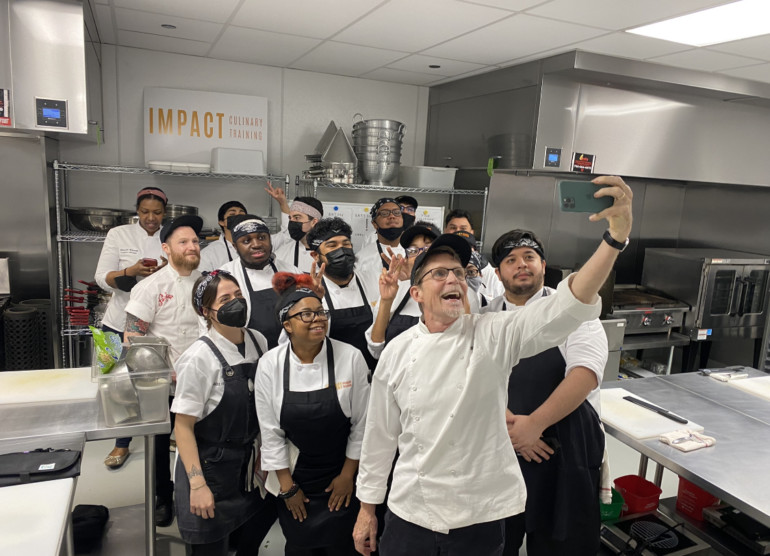In the 1980s, Rick and Deann Bayless entered Chicago’s restaurant scene with Frontera Grill; then came the high-end Topolobampo and street-food focused Xoco. Additional restaurants followed in Chicago and other cities. But creating and serving innovative takes on traditional Mexican food is only part of what Bayless is doing for Chicago and — at the risk of sounding a bit grandiose — the world.
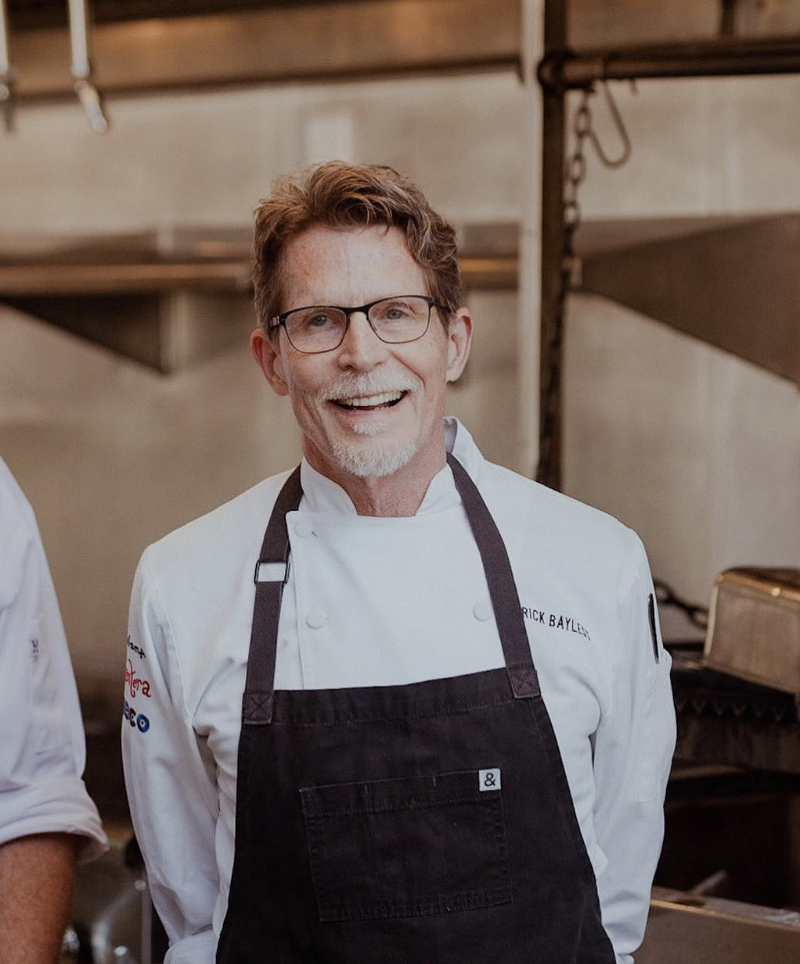
Along the way, Bayless has given back to many local communities to an extent almost unheard of in the restaurant, or any other, industry. And he’s done so through organizations like the Frontera Farmer Foundation, the Bayless Family Foundation, and the IMPACT Culinary Training Program. In addition to these initiatives, he’s supported legislation to help restaurant workers, and he’s offered financial assistance and expert guidance to organizations like S.A.C.R.E.D. (Saving Agave for Culture, Recreation, Education and Development). We recently talked to Bayless and asked him to share more about his philanthropic endeavors. Read on to learn more about these five impactful organization making waves in the food industry.
Frontera Farmer Foundation
“Dropping $10,000 here and $12,000 there really changes people’s lives.”
Founded in 2003, the Frontera Farmer Foundation attracts individuals and organizations who want to support small Midwestern farmers and help them become more profitable and productive, even in a challenging economy.
“We started by offering a low-interest loan program, and what we learned right off the bat,” Bayless remembers, “was dropping $10,000 here and $12,000 there really changes people’s lives.”
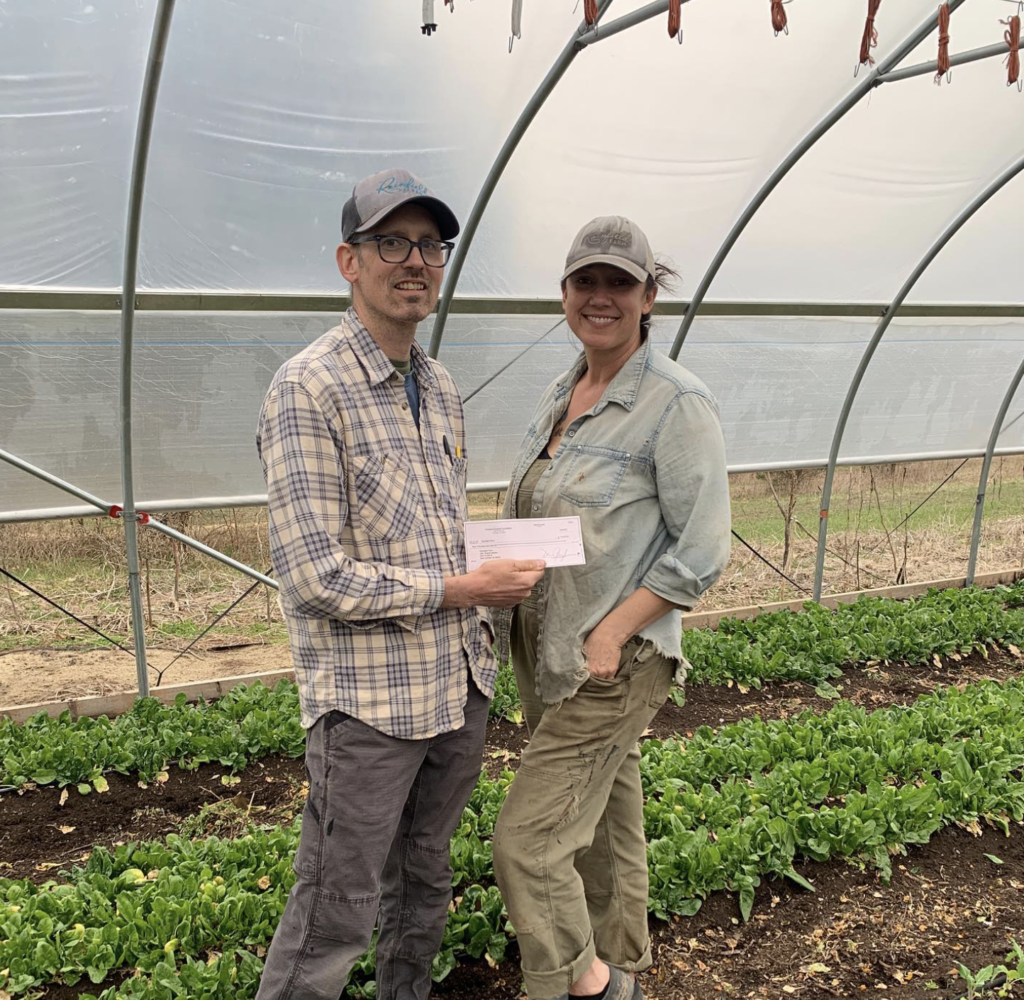
The Frontera Farmer Foundation focuses on relatively established farms, ones that have been in business at least three years. And they provide those small, frequently struggling farms with the money to install, for instance, an irrigation system or a high tunnel, which is a type of greenhouse with a steel frame covered in polyethylene that allows sunlight to warm the soil year-round. These are not big investments, but they make a big difference.
“At Snug Haven Farm,” says Bayless, “they plant spinach in their high tunnel in November, and it starts growing, but it stops growing during the late part of December and into January. They start harvesting in February when the days get longer, and the sun is beating down on that tunnel and trapping the heat in there. At night, it’ll drop down to a light frost. After that, the spinach leaves will slightly wilt, but they’ll produce their own sugar to keep them from freezing solid. This will be the sweetest spinach you’ve ever tasted in your life. Snug Haven Farm had one high tunnel, and we loaned them money to buy another. They paid us back with a spinach crop the next year. That’s how Frontera Farmer Foundation was born.
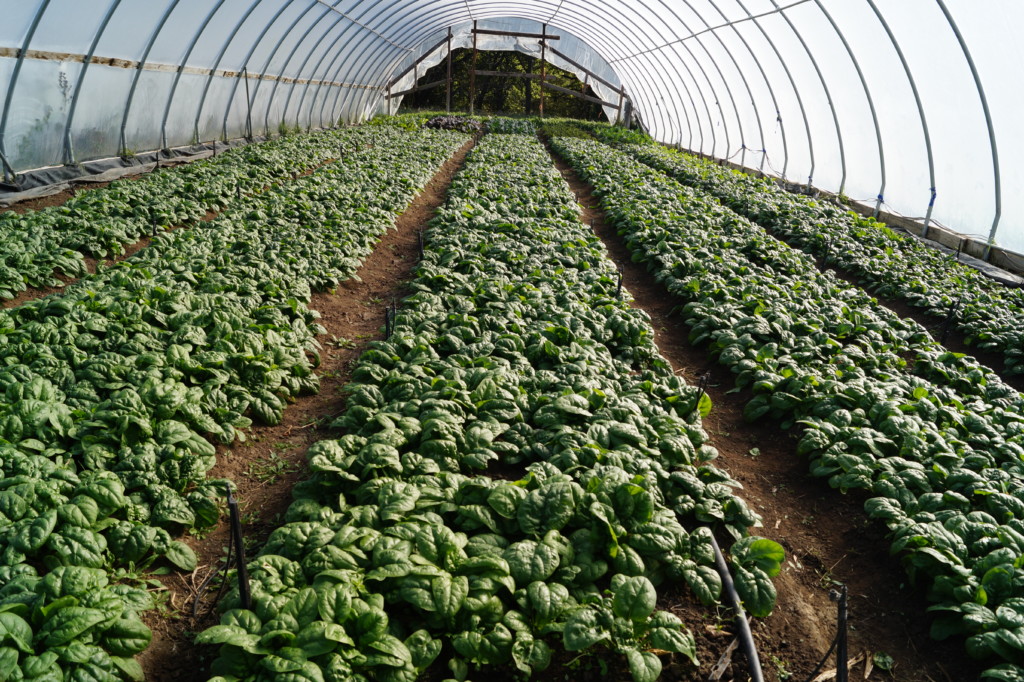
The Frontera Farmer Foundation eventually became a not-for-profit that raises funds to be distributed as grants rather than loans that had to be paid back.

Bayless Family Foundation
“We’re always looking for storefront theaters we can help to the next level with an investment.”
The Bayless Family Foundation supports established Chicago theater organizations that provide entertainment designed to ignite conversation and expand community through high-impact storytelling that reaches a broad audience.
Bayless tells us that he was into theater “since I was a little kid. My wife, Deann, has a master’s degree in theater; my daughter went to NYU in theater; my son-in-law has a theater degree. We’re very, very much a theater-oriented family, and we’re always looking for storefront theaters we can help to the next level with an investment.”
The Bayless Family Foundation recently announced a contribution of $350,000 in the form of grants to a number of Chicago theater groups, including Shattered Globe Theater, Chicago Children’s Theater and Steep Theatre, which is, Bayless tells us, “a tiny little theater, but man, they do amazing work. Everybody loves it. I mean, all the critics think that they do just incredible stuff. So, we invested in them to help bring them up to that next level so that they could hire the right people to put themselves on the map.”
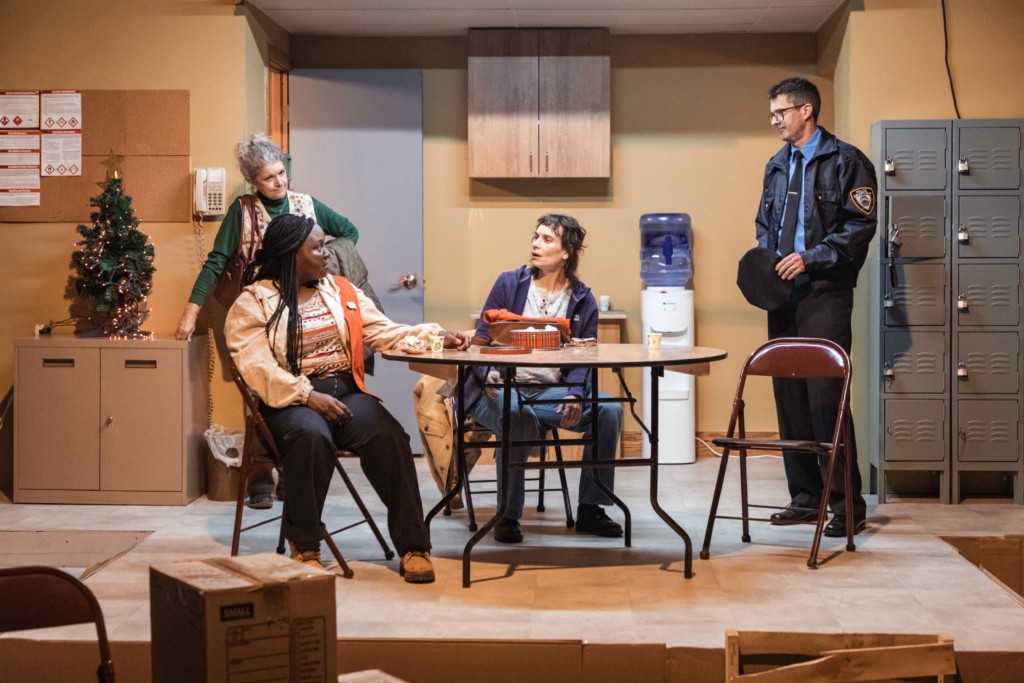
When people with the visibility and notoriety of the Bayless family choose to help smaller theaters, other contributors tend to take note and put up some of their own money. As Bayless explains, his family is not aiming to support these small theaters all by themselves. Rather, they “want to encourage other people to give money as well.” Such encouragement comes in the form of signal grants that “draw focus to a company the foundation believes in,” and the hope is that signal grants will inspire other donors to give generously to these theater companies.
Learn more or apply for a grant.
IMPACT Culinary Training
“To help prepare students for entry-level positions and kick-start their culinary careers.”
IMPACT Culinary Training provides Chicago young adults aged 16-24 with eight weeks of classroom instruction and four weeks of paid internship at Chicago restaurants. The goal of the program is to help prepare students for entry-level positions and kick-start their culinary careers.
According to Bayless, the program “trains restaurant workers or potential chefs from neighborhoods that are often overlooked. We started the IMPACT program to give people basic skills and training to get them into some very good restaurants.”
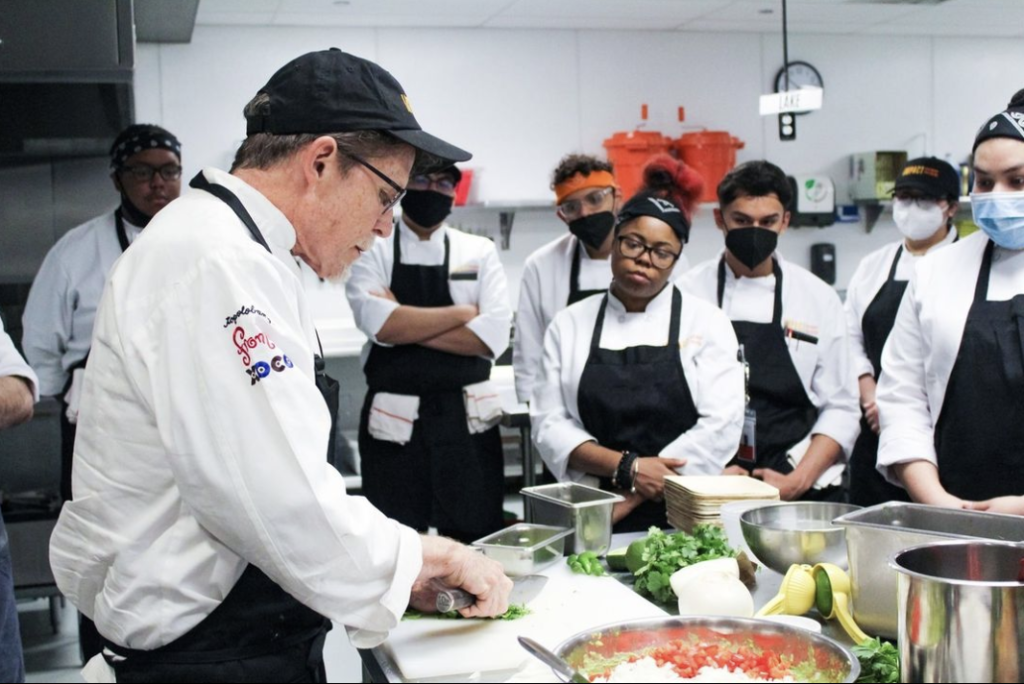
The first step in the process of preparing students for life in the kitchen is to introduce them to the best chefs in Chicago.” These chefs first come and teach in our classes,” Bayless explains, “and then we send the students to their restaurant for a one-day trial. After that, we determine if they should go back for their internship.”

Independent Restaurant Coalition
“We are advocates for smaller places that perhaps don’t have that privilege of being listened to.”
Aside from helping individual farmers, theaters and aspiring student chefs, Bayless and family have worked hard to push through legislation that will help all restaurant workers.
“During the pandemic,” Bayless tells us, “it became very clear to me that a whole lot of restaurants were not really being represented. The money tended to go to large chains. We needed another advocacy group to focus only on independent restaurants. So, we created the Independent Restaurant Coalition, our big advocacy group that promotes your mom-and-pop neighborhood places. We are advocates for smaller restaurants that perhaps don’t have that privilege of being listened to very often
“We got some good lobbyists to work with us, and we got some underwriters, including organizations like OpenTable, to help fund us through the pandemic.”

S.A.C.R.E.D.
“Promoting mezcaleros so they can generate enough money to support their families and their communities.”
S.A.C.R.E.D. (Saving Agave for Culture, Recreation, Education and Development) was founded to help small, independent makers of agave spirits to grow and market their products. These smaller producers of mezcal are sometimes taken advantage of by larger commercial concerns that profit handsomely from the distribution of these products while the makers of these same products frequently receive very little compensation. Bayless took to heart the injustice.
“I said to Lou Bank, the founder of S.A.C.R.E.D., that I would really like to be on the Board of Directors. S.A.C.R.E.D. makes sure that we’re promoting the mezcaleros so they can generate enough money to support their families and their communities, which are producing the best mezcal in the world. It’s just so weird that we’re thinking about high-end bars in the United States that are offering this beautiful product, but the people who make this wonderful spirit can’t make enough money to support their families.”
Bank was very happy to have Bayless on his board and told us that “Rick will be able to offer me insights into how rural Mexican communities’ function. He’s lived in those communities, sometimes for months at a time, and he understands the politics better than we do. It’s not what you’d expect from a celebrity chef, but I do truly think, after conversations with him, that his insights will help us better navigate these communities.”

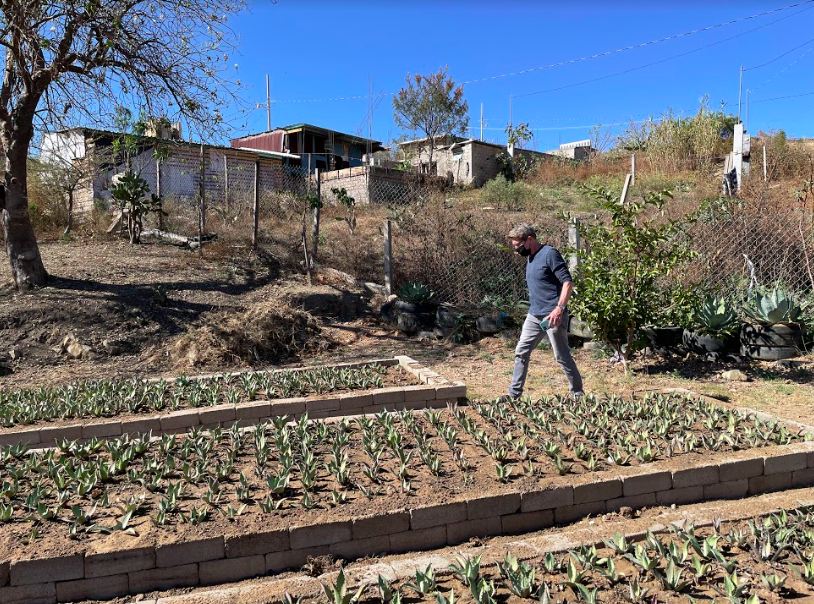
Running a number of successful restaurants would be enough for many of us, but Rick Bayless has recognized that the world of the restaurant extends way beyond the kitchen walls, and he and his family have devoted themselves to making the world a better place to live and work…and, of course, to eat.
On Friday, October 7, Rick Bayless is bringing the iconic Mexican flavors of Frontera Grill to Brookfield Zoo for a family-style charity dinner benefitting the Frontera Farmer Foundation as well as Chicago Zoological Society’s animal conservation efforts. “We are all about the collaborative spirit,” says Bayless. “So, bringing our restaurant experience to unexpected places like Brookfield Zoo will be thrilling for us—and unforgettable for guests.” Tickets can be purchased by emailing: brookfieldeventsales@thessagroup.com
More From Better
- Dana Cowin, Chicago Celebrity Chefs Pay It Forward With Can’t-Miss Foodie Events This October — Tickets on Sale Now
- Hurricane Ian Devastates Florida: How To Help Those Impacted by the Storm
- From ‘Abbott Elementary’ to ‘Ms. Marvel’: Greater Good Magazine Celebrates Humanity-Centered Television, Emmy Winners

David Hammond is Dining and Drinking Editor at Newcity and contributes to the Chicago Tribune and other publications. In 2004, he co-founded LTHForum.com, the 15,000 member food chat site; for several years he wrote weekly “Food Detective” columns in the Chicago Sun-Times; he writes weekly food columns for Wednesday Journal. He has written extensively about the culinary traditions of Mexico and Southeast Asia and contributed several chapters to “Street Food Around the World.”
David is a supporter of S.A.C.R.E.D., Saving Agave for Culture, Recreation, Education and Development, an organization founded by Chicagoan Lou Bank and dedicated to increasing awareness of agave distillates and ensuring that the benefits of that awareness flow to the villages of Oaxaca, Mexico. Currently, S.A.C.R.E.D is funding the development of agave farms, a library and water preservation systems for the community of Santa Catarina Minas, Oaxaca.
